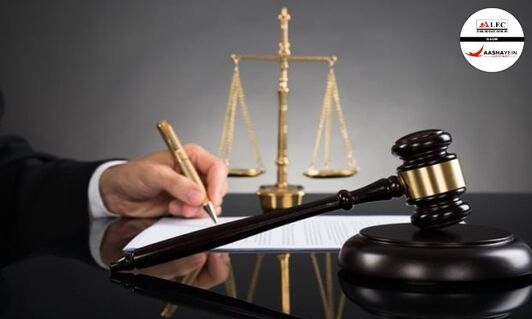The 9-judge bench of the Supreme Court in the case of Property Owners Association & Ors vs State of Maharashtra & Ors. gave a landmark judgement on the scope of Article 39 (b) of the Constitution. The Supreme Court examined whether privately owned assets are included in the definition of "material resources of the community" in Article 39(b) and held by an 8:1 ratio that the state cannot redistribute privately owned property for the community.
Background of the case
The Maharashtra Housing and Area Development Act 1976 (MHADA) was enacted to address the challenges related to housing and urban development in the state of Maharashtra. Its 1986 Amendment introduced the Chapter 8A in the Act which gives power to the state to acquire certain properties by paying compensation equal to 100 times the monthly rent of the property being acquired. Additionally, the Amendment included Section 1A, allowing the implementation of Article 39(b) of the Constitution, which promotes the distribution of resources for the common good. As an effect, this amendment permitted the state to seize private structures in Maharashtra for restoration, repair, or transfer to a cooperative society. The property owners argued that the act of treating their private property as a "community resource" and redistributing them is a clear violation of their right to equality enshrined under Article 14 of the Constitution.
Constitutionality of the case
The case deals with various Constitution provisions which include Article 39(b) which is a Directive Principle of State Policy (DPSP), and says “that the government should direct policies to ensure that ‘material resources of the community’ are distributed to best serve public welfare”. It is not enforceable like the Fundamental Rights, but it guides the state's decisions in lawmaking. Further, the case also deals with Article 300A of the Constitution which protects the right to own property, stating that no person shall be deprived of their property except by authority of law.
You can also read the latest judgment by visiting [Latest Judgment]
For more information, visit [Aashayein Enquiry Section]
Previous judgement on the issue
The issue before the Supreme Court is not new and has been dealt by the court previously also. Justice Krishna Iyer held in State of Karnataka vs. Ranganatha Reddy & Anr. (1978) that all property, whether natural or man-made, privately or publicly owned, is included in the concept of "material resources of the community." Further, in the 1982 case of Sanjeev Coke Manufacturing vs. Bharat Coking Coal Ltd., a Constitutional Bench upheld this view, ruling that Article 39(b) applies generally to all resources, including privately owned ones as well as those controlled by the public.
Supreme Court’s view on the issue
The 9-judge bench of the Supreme Court delivered this judgement after a 30-year-long battle, which clarified fundamental questions on property rights and the socialist aspect of the previous amendments. It held that the state does not have power under Article 39 (b) of the Constitution to automatically take control of private property by calling them “material resource of the community”. The apex court emphasized that India's economic policies have changed from a state-controlled system to a more market-driven economy during the 1990s. Therefore, the state cannot have unrestricted control over private resources. This ruling strengthens property rights protection and limits the government's ability to seize or manage private property without a valid reason. The ruling is significant for reinforcing Article 300A of the Constitution, which protects individuals from being deprived of their property without legal authority. By stating that government intervention must be justified by a clear public benefit, the Court highlighted that property rights are essential and cannot be overridden without valid reasons.
A shift from Justice Krishna Iyer’s view
Through this judgement, the apex court took a turn from the view of Justice Krishna Iyer given in State of Karnataka vs. Ranganatha Reddy & Anr. (1978) judgement, where he was of a socialist view that the state could take private property to promote social and economic equality. However, the Supreme Court through this judgement clarified that Article 39(b) should not be broadly used as a justification for the state to take private property. Chief Justice Chandrachud, in his main opinion, highlighted that while DPSPs like Article 39(b) should influence government policies, they cannot override the individual rights protected under Part III of the Constitution. This view is in line with Dr. B.R. Ambedkar's belief in balancing social justice with the protection of individual freedoms and rights.
The dissent in the judgement
Justice Nagarathna wrote a separate judgement from the majority where she agreed with the conclusion of the majority judgement but dissented from the view that present judges should criticize the previous judgements which consider private property as material wealth. Further, she added that Justice Krishna Iyer’s view should not be condemned based on present circumstances. Further, Justice Sudhanshu Dhulia wrote the dissenting judgement and agreed with the previous judgement that private property can be considered as material wealth.

